In today’s world, simply earning a degree or completing college isn’t enough. You need a variety of skills to find a job and build a career. Skill development means learning new skills and improving existing ones. This strengthens both your personality and your career.
Let’s say you know how to operate a computer, but if you’re not fluent in Excel or PowerPoint, your value in the office may be diminished. However, if you’ve mastered these skills, your chances for promotion and growth increase significantly.
Types of skill development
Skill development can be divided into two broad parts:
1. Hard skills
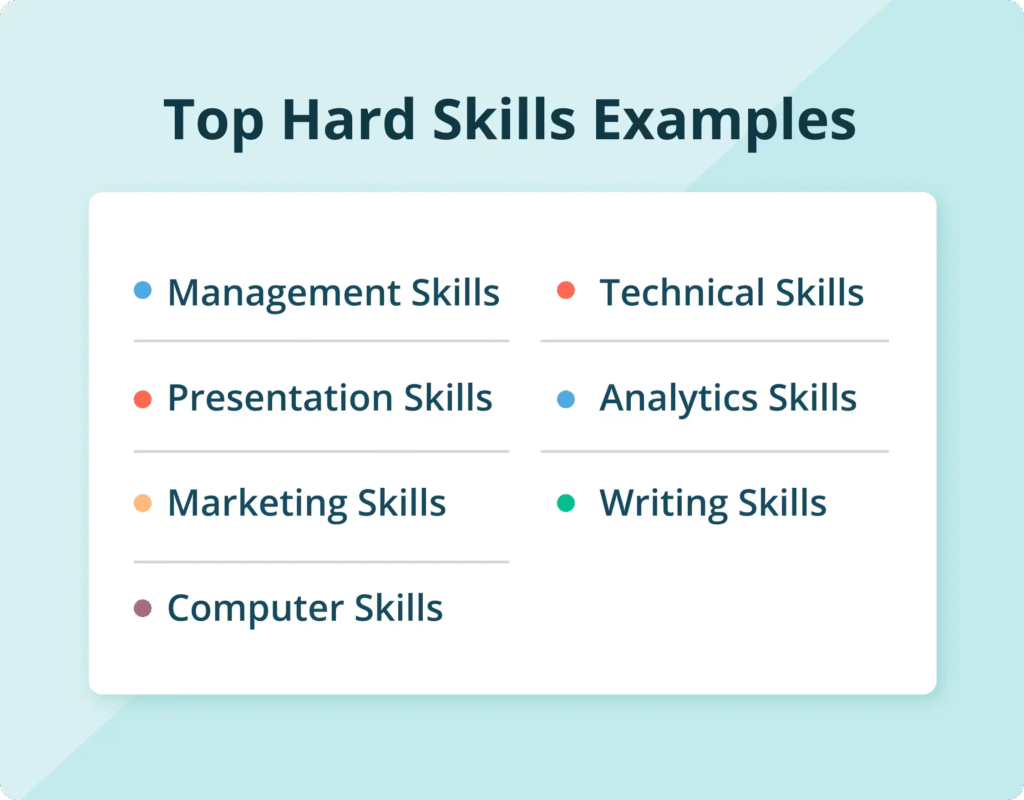
These are skills learned to perform a particular task. For example:
- computer programming
- graphic design
- Digital Marketing
- Accounting
- driving a car
To learn these skills, you need training, courses, or practice
2. Soft skills
These are abilities related to your behavior and personality. Such as:
- communication skills
- Time Management
- Teamwork
- Problem Solving
- Leadership
These skills will be useful in your career for a long time because they help you connect with people better.
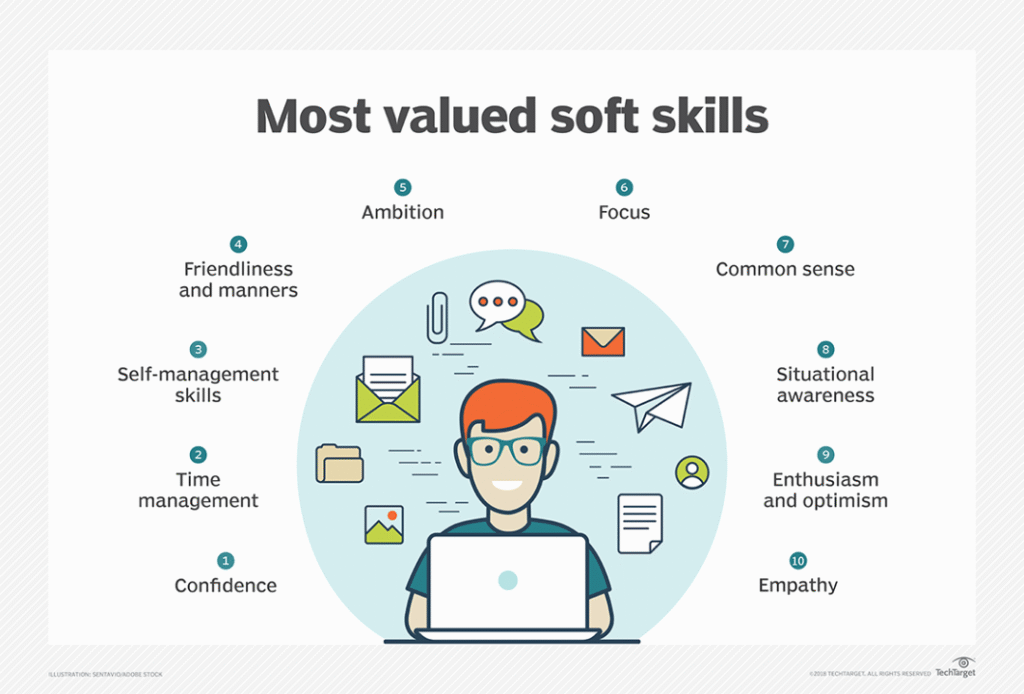
Why is skill development important?

- Career Growth : Learning new skills increases your chances of getting a promotion and a better job.
- Confidence increases : When you know how to do any work well, your confidence increases.
- Market Demand : The industry is changing with the changing times. If you continue to learn new techniques and skills, you will always be in demand.
- Personal Growth : Skills are not only useful for jobs but also make your everyday life easier.
How to do skill development?
1. Online courses and training
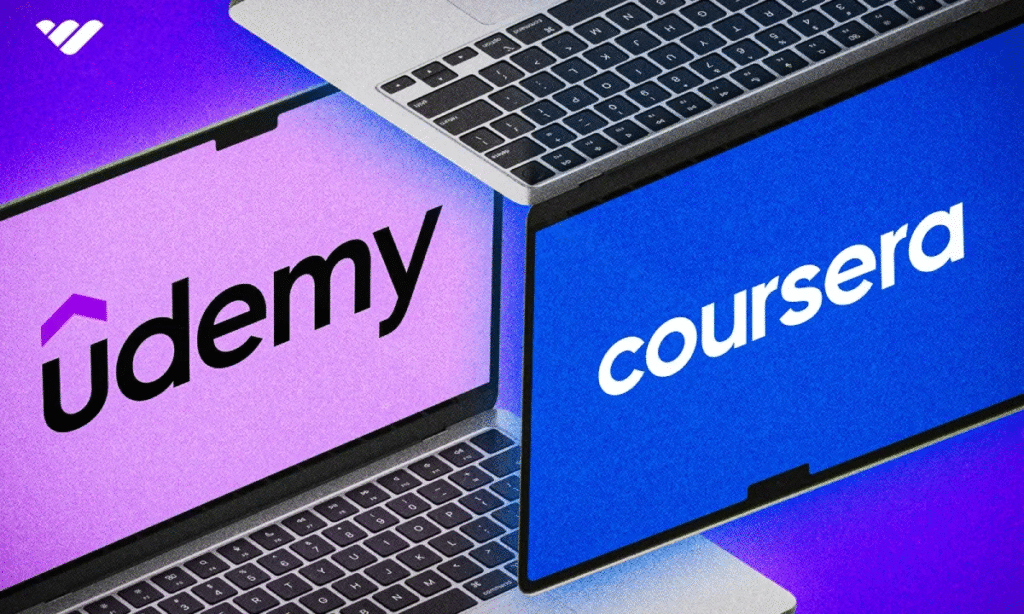
There are thousands of free and paid courses available online these days. You can easily learn new skills from websites like YouTube, Coursera, Udemy, or Google Skillshop.
2. Practical Experience
Skills don’t come from just reading. You need to practice. For example, if you’re learning web design, start by working on small projects.
3. Workshops and seminars
Offline workshops are also very helpful. Here you can meet experts and receive direct guidance.
4. Mentorship
Learning a skill becomes easier if you have someone experienced to guide you.
5. Books and Articles
Reading books and articles related to each skill is also very beneficial.
Examples of skill development
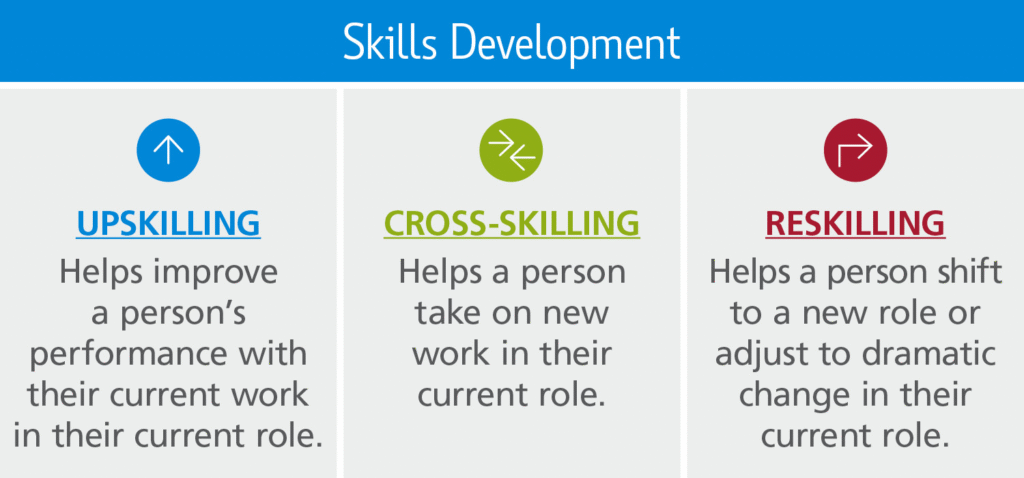
Let’s say you’re a student looking for a job in the future. If you work on your computer and communication skills now, finding a job will be easier.
To take another example, if you run a business and learn digital marketing, you won’t need to spend money on an agency. You can do your own branding and marketing.
Challenges in skill development
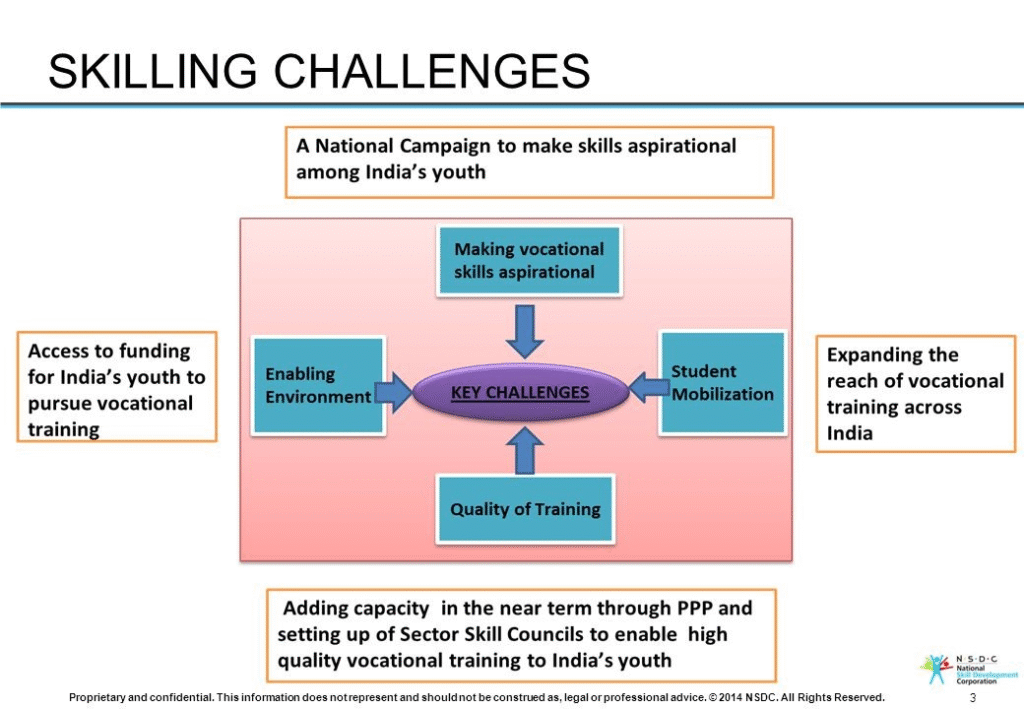
- Lack of time : It becomes difficult to find time to learn skills amidst studies or job.
- Lack of right direction : Many times we do not know which skill we should learn.
- Continuous practice : Continuous practice is necessary to strengthen skills.
- Lack of motivation : Giving up midway is also a common problem.
How to overcome these challenges?

- Take out 1 hour every day for skill development.
- Choose skills according to your career goals.
- Practice by making small targets.
- Read stories of successful people to stay motivated.
Importance of skill development in the future


In the future, the demand for skills like artificial intelligence, machine learning, digital marketing, data science, and communication will only increase. If you work on these skills now, you’ll have no problem building a career in the future.
Skill development isn’t a one-day task; it’s an ongoing process. If you want to progress in your career and personal life, you need to continually learn new skills. This is like an investment that will pay off throughout your life.
| Tip | Explanation |
|---|---|
| 1. Set Clear Goals | Decide what skills you want to learn and how they will benefit your career or personal life. |
| 2. Practice Daily | Work on that skill for at least 30–60 minutes daily to maintain consistency. |
| 3. Use Online Courses | Get cheap and easy training from platforms like Coursera, Udemy, YouTube. |
| 4. Work on Real Projects | Skills become stronger faster by doing practical work rather than theory. |
| 5. Take Feedback | Show your work to others and get suggestions for improvement. |
| 6. Take Guidance From a Mentor | Take advice from experts or experienced people, this will give you the right direction. |
| 7. Read Books & Articles | Read books and blogs related to each skill to increase your knowledge and depth. |
| 8. Join Workshops & Seminars | From here you get the opportunity for new ideas and networking. |
| 9. Make small targets | Instead of trying to acquire a big skill, set small targets and progress gradually. |
| 10. Maintain Motivation | Don’t give up midway, keep yourself motivated by reading stories of successful people. |
This article is for educational and informational purposes only. The information provided is intended to provide you with an understanding of skill development. Always do your own research before making any course, training, or career decisions. Neither the author nor the website is responsible for any financial, professional, or personal decisions.
#SkillDevelopment #CareerGrowth #PersonalDevelopment #Carrerbook #Anslation #SoftSkills #HardSkills #LearningJourney #SelfImprovement #ProfessionalSkills #BoostYourCareer #GrowthMindset